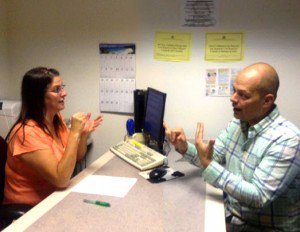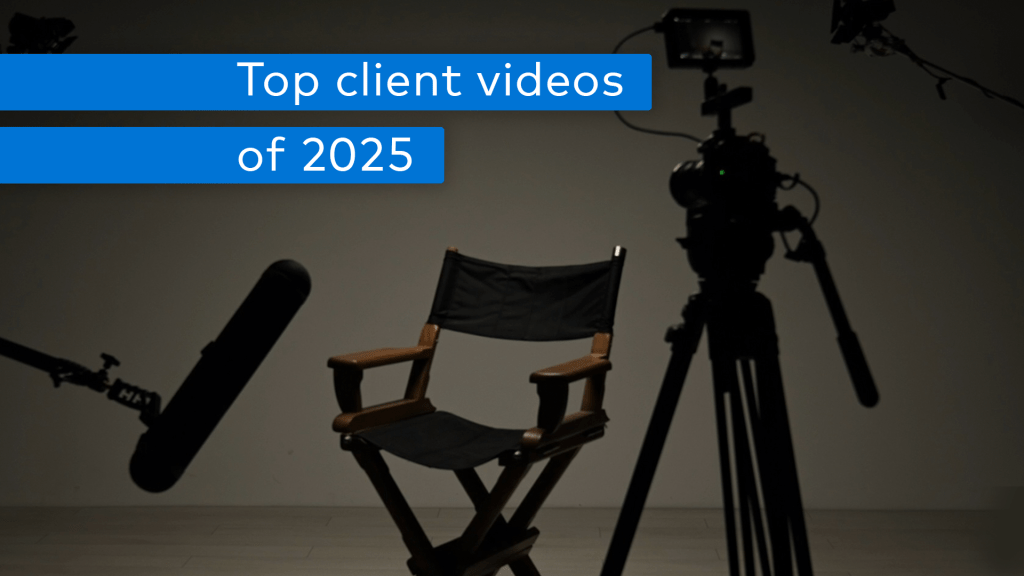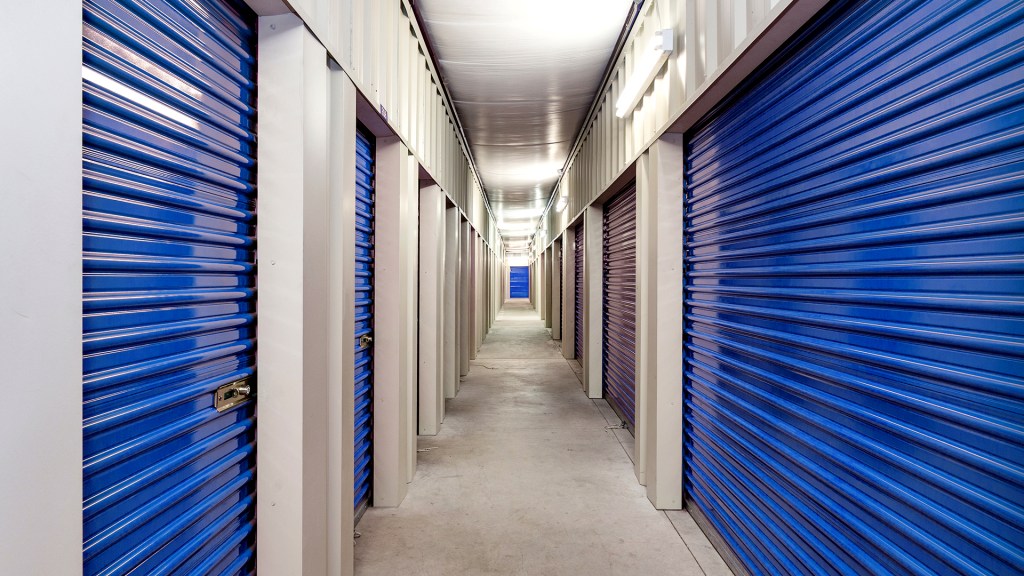By Leah Etling on November 22, 2013 in People
Yardi Voyager is used by companies and agencies around the world. But a training session for Yardi’s flagship product had probably never been delivered in American Sign Language (ASL) until very recently.
Thanks to the initiative of Yardi Public Hou sing Technical Account Manager Bill Hughes, a staff member of the Ventura County Housing Authority, who is deaf and depends on ASL and reading lips to communicate was recently trained on Voyager by Hughes, using ASL.
sing Technical Account Manager Bill Hughes, a staff member of the Ventura County Housing Authority, who is deaf and depends on ASL and reading lips to communicate was recently trained on Voyager by Hughes, using ASL.
A student of ASL for about four years, Hughes and his wife Rosa volunteer to work with members of the local deaf community through their congregation. But that volunteer work typically doesn’t involve real estate technology.
Converting some of the technical details of the sophisticated accounting and record-keeping system was more than a little tricky, Hughes said.
“There were industry signs I had never used, because that’s not what I have practiced. So I immediately I went to work researching certain terms,” Hughes said. “Most everything software related was an immediate challenge. I had to do a lot of online research and work with the client prior to the visit to establish signs related to industry concepts.”
The advantage to having a Yardi expert fluent in ASL conduct the training, rather than using an outside interpreter, was pivotal.
“The few seconds between interpretation and vocal training would be eliminated, making it easier for the recipient to interject questions,” Hughes wrote in an article about the training that was published in the company newsletter this month.
The article generated tremendous response from his colleagues at Yardi, who applauded his effort and shared their own experiences with sign language and in some cases dealing with hearing disorders in their own lives.
“It’s really nice to know that our company has taken a positive step to train deaf people to use the product,” wrote one Yardi employee.
“It takes a lot of patience to learn as well as training others using technical signs (inventing signs in order to understand how Voyager runs, etc.,” wrote an employee from Yardi’s Jacksonville office, who is hearing impaired and was impressed with Bill’s efforts.
The Hughes’ are both passionate about learning new languages. In addition to speaking English, Spanish, and ASL, Bill is working on learning Hindi, and Rosa is focused on mastering Japanese.
“Being fluent in English, Spanish, and ASL allows us to work with Spanish speaking families struggling with language barriers that challenge communication with deaf family members,” Bill explained. “Since both my wife and I are also fluent in Spanish, we have worked with families from Mexico where the parents don’t speak much English and haven’t learned ASL. The deaf children don’t understand Spanish and there is a huge communication gap that needs to be bridged.”
He’s also been able to incorporate technology into the teaching experience. With one deaf man who Hughes works with, he’s been able to incorporate Google Maps and ASL to show him his house, city, state, nation and North America from a global perspective, illustrating the vastness of the world that we live in.
Another significant moment was when he was able to sign the name of the young man’s mother using the ASL alphabet, sharing her name with him for the first time.
“He just knew that was his mom, so to actually understand that that is her name and that’s unique to her – that was amazing,” Bill said.
The Hughes’ are also planning to explore international variations of sign language, and recently learned they are invited to an international convention of Jehovah’s Witnesses that will be held in 2014 in Zimbabwe – one of several global convention locations around the world.
“We may spend some time focusing on Zimbabwean sign language so when we get there we’ll be able to communicate,” Bill said. Given their eagerness to learn new things, sounds like the Hughes’ shouldn’t have any trouble with that.


